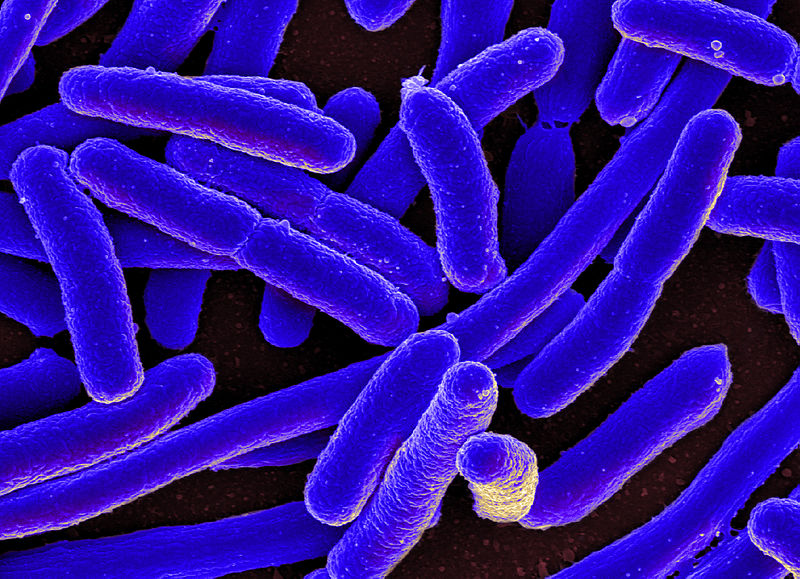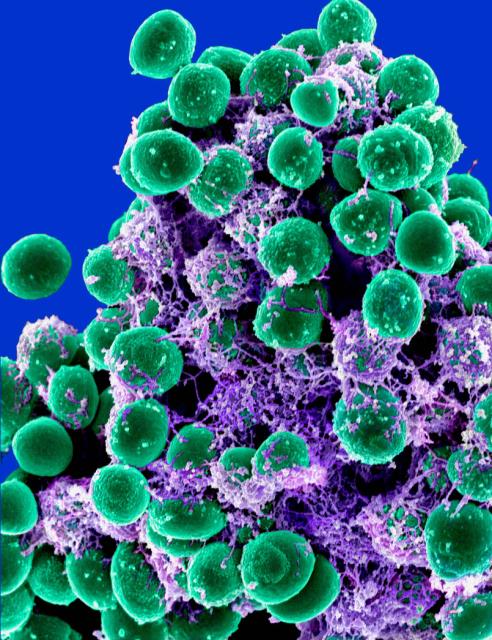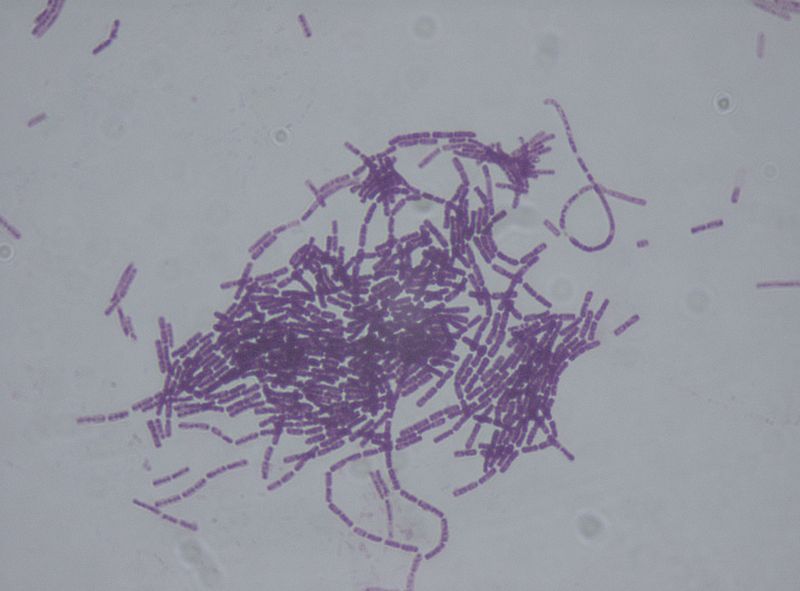
The Benefits of Bacteria
Bacteria can fight such medical conditions as cancer, obesity and diabetes, acne, and malaria.
Each person’s skin and large intestine harbor a complex array of microorganisms, called microbiota, that affect many aspects of their health and physiology, the way in which a living organism or bodily part functions. Recent studies show that some of these bacteria can be used to activate and target immune cells directly to tumors, delivering a strong anti-tumor response. Others can help to clear acne and combat obesity.
Cancer immunotherapy is treatment that encourages the body’s own immune system to attack disease. It uses substances made by the body or in a laboratory to enhance or restore the function of natural defenses. According to Cancer.net, “immunotherapy may work by stopping or slowing the growth of cancer cells; stopping cancer from spreading to other parts of the body; and helping the immune system work better at destroying cancer cells.” Some immunotherapy treatments rely on gut bacteria to activate the immune system.
Anaerobic conditions, the absence of oxygen, are prevalent in cancerous tumor cells, contributing to making it difficult to fight those cells using chemotherapy. But certain strains of bacteria, such as Clostridium, can infiltrate the cells and proliferate well in such an environment, where they are highly active. This means they provide the perfect means to deliver anticancer agents that can produce bacterial toxins or antigens and prompt an immune response. Anaerobic bacteria can also deliver components to keep tumors from proliferating and facilitate their destruction. The relatively successful clinical research experiments achieved so far in these areas lead to believe that bacterial cancer therapy is a very promising treatment.
Experiments using mice suggest that intestinal microbiota may also influence the development of obesity. The authors of an article in Science magazine, sharing the results of their research, found that the introduction of microbiota in mice from lean or obese humans produced a similar composition in the animals. Most interestingly, the microbiota transplanted from lean people invaded and reduced fat gain in the obese-recipient mice if the mice were fed a low-fat, high-fiber diet.
This means that the different kinds of bacteria that live inside the gut can help spur obesity or protect against it, which could explain why some people have a greater tendency to gain weight than others, or a harder time losing it. It also means that gut bacteria could be turned into personalized therapies, such as introducing good germs in overweight individuals through fat-fighting pills.
Plants, too, can benefit from bacteria, by helping them defend again pests or disease-causing microorganisms.
The use of beneficial microorganisms as biological pesticides, or biopesticides, offers an attractive alternative to chemical pesticides and an environmentally-friendly strategy for agriculture. There are several types of biopesticides, but microbial pesticides have microscopic organisms such as bacteria, fungi, viruses or protozoans as their active ingredient that can control many kinds of pests. One of the most widely used is Bacillus thuringiensis, a soil-dwelling bacterium. It produces insecticidal crystalline proteins that bind to receptors in the gut of certain insects, leading to their death.
Bacteria are believed to be the first form of life that emerged on earth. They are the most abundant life form on the planet. Many can cause disease, but many others are useful. Indeed, just as we humans must have oxygen to live, we must also have bacteria to live. They help us digest, supply us with needed vitamins, and are an important part of the development of our immune systems, for example. The realization that they can influence health has opened the door to discovering ways to use and modify them to fight some of the hardest conditions to treat in animals and plants.




This is very interesting. I wonder if the use, possibly over use of anti-bacterial soaps has had an unexpected negative effect on our ability to ward off illness?
That question could be the impetus for another related study.